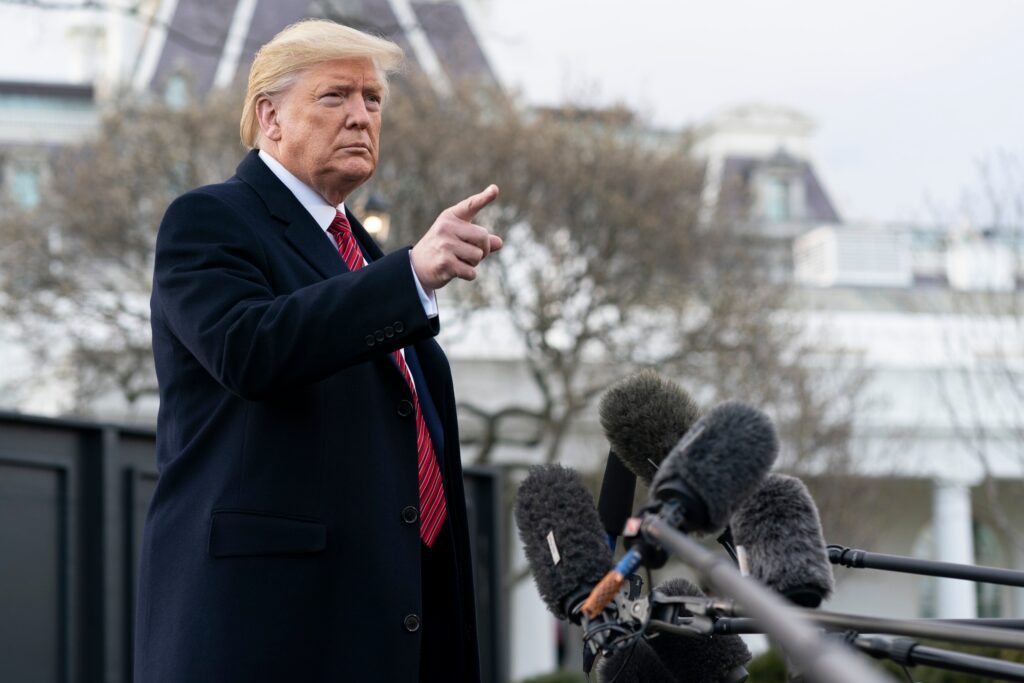The Kremlin has brushed aside speculation about an imminent summit between Vladimir Putin and Volodymyr Zelensky. At the same time, Donald Trump renewed his push for both leaders to meet and try to end the war in Ukraine.
The idea of direct negotiations emerged after Trump’s meeting with Putin in Alaska last week. On Monday, he hosted Zelensky and seven European leaders at the White House.
Trump admitted the conflict was difficult to resolve. He warned that Putin might not want to halt the fighting. “We’re going to find out about President Putin in the next couple of weeks,” he said on Tuesday. “It’s possible that he doesn’t want to make a deal.”
Trump proposes leaders meet without his presence
Trump argued that Putin faced “a rough situation” if he resisted negotiations but gave no details. He later suggested it might be better if Zelensky and Putin met without him. The comments came during an interview with conservative radio host Mark Levin.
The US president added he would attend a summit “if necessary” but preferred to wait and observe.
Putin told Trump on Monday he was “open” to direct talks with Ukraine. Yet Foreign Minister Sergei Lavrov quickly downplayed that offer. He said any meeting must begin at expert level and proceed step by step.
Russian deputy envoy to the UN Dmitry Polyanskiy also insisted that no one had rejected talks. But he cautioned that a summit should not be “a meeting for the sake of a meeting.”
Nato chiefs plan strategy as Russia hints at Moscow
Nato’s military chiefs are due to meet virtually on Wednesday. Britain’s defence leader, Admiral Tony Radakin, has travelled to Washington to discuss a reassurance force in Ukraine.
Reports indicated Putin suggested to Trump that Zelensky could travel to Moscow for talks. Kyiv was never likely to accept such an idea. Analysts viewed it as a proposal designed to appear constructive but unrealistic.
Recent discussions appear to have given Trump a clearer sense of the war’s complexity. He now recognises the distance between Moscow’s demands and Kyiv’s stance.
Trump once promised he could quickly secure a ceasefire. That has not materialised. Instead, he now promotes a permanent peace deal, supported by security guarantees for Ukraine.
Zelensky and European leaders have stressed the importance of such guarantees. They argue Ukraine’s sovereignty depends on them if peace is reached.
Trump pledges only air support
On Tuesday, Trump said the US could support Europeans “by air” if they provided troops in Ukraine. He ruled out deploying American soldiers. He offered no clarity on whether air support would mean intelligence, jets, or other aircraft.
Meanwhile, France and the UK are leading a “coalition of the willing.” The group is working on a reassurance force that could enter Ukraine after hostilities stop.
A Downing Street spokesperson said the coalition met virtually on Tuesday. They plan to meet US officials soon to strengthen long-term security guarantees.
Historic animosity overshadows peace hopes
After his meetings with Putin and Zelensky, Trump suggested direct talks might bring peace closer. Yet he admitted there was “tremendous bad blood” between both leaders.
The last time Putin and Zelensky met was in 2019. Since then, Russia’s war has killed tens of thousands, destroyed cities, and targeted civilians with airstrikes.
Putin refuses to recognise Zelensky’s legitimacy. He blames him for Ukraine’s growing ties with the West. For years, Putin has falsely claimed that Kyiv is ruled by a “neo-Nazi regime.” He demands leadership change in Ukraine as a condition for any ceasefire.
Russia also shows little interest in talks while its forces hold the battlefield advantage.
Still, Zelensky and European leaders continue to support a summit. Zelensky said on Monday he was open to “any format.” Europeans have already discussed potential venues.
Their support for direct talks may be aimed at pushing Trump toward a tougher stance if Putin refuses concessions.
European leaders voice deep scepticism
Europe remains far more doubtful about Russia’s intentions than Trump. On Tuesday, French President Emmanuel Macron called Putin “a predator, and an ogre at our doorstep.” He expressed strong doubts about Moscow’s readiness for peace.
Finnish President Alexander Stubb also warned against trusting Putin. He said he was sceptical about a Zelensky-Putin meeting ever happening.
More high-level meetings are expected in the coming days. European leaders remain uncertain about how strongly Trump will back their security.


